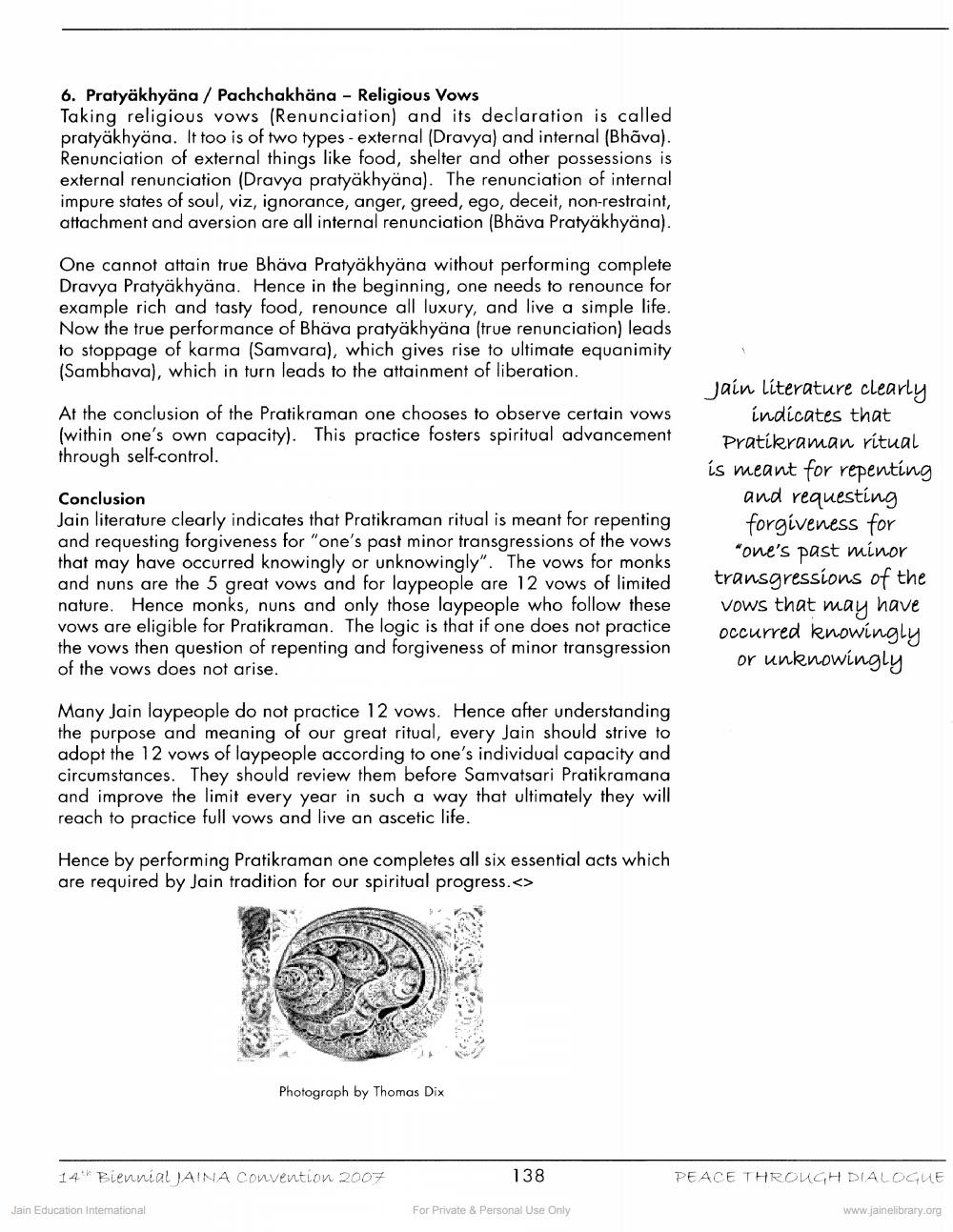________________
6. Pratyakhyana / Pachchakhäng - Religious Vows Taking religious vows (Renunciation) and its declaration is called pratyakhyana. It too is of two types - external (Dravya) and internal (Bhāva). Renunciation of external things like food, shelter and other possessions is external renunciation (Dravya pratyakhyana). The renunciation of internal impure states of soul, viz, ignorance, anger, greed, ego, deceit, non-restraint, attachment and aversion are all internal renunciation (Bhäva Pratyakhyana).
One cannot attain true Bhäva Pratyakhyana without performing complete Dravya Pratyakhyana. Hence in the beginning, one needs to renounce for example rich and tasty food, renounce all luxury, and live a simple life. Now the true performance of Bhäva pratyakhyana (true renunciation) leads to stoppage of karma (Samvara), which gives rise to ultimate equanimity (Sambhava), which in turn leads to the attainment of liberation.
At the conclusion of the Pratikraman one chooses to observe certain vows (within one's own capacity). This practice fosters spiritual advancement through self-control.
Conclusion Jain literature clearly indicates that Pratikraman ritual is meant for repenting and requesting forgiveness for 'one's past minor transgressions of the vows that may have occurred knowingly or unknowingly". The vows for monks and nuns are the 5 great vows and for laypeople are 12 vows of limited nature. Hence monks, nuns and only those laypeople who follow these vows are eligible for Pratikraman. The logic is that if one does not practice the vows then question of repenting and forgiveness of minor transgression of the vows does not arise.
jain literature clearly
indicates that Pratikraman ritual is meant for repenting
and requesting
forgiveness for "one's past minor transgressions of the vows that may have occurred knowingly or unknowingly
Many Jain laypeople do not practice 12 vows. Hence after understanding the purpose and meaning of our great ritual, every Jain should strive to adopt the 12 vows of laypeople according to one's individual capacity and circumstances. They should review them before Samvatsari Pratikramana and improve the limit every year in such a way that ultimately they will reach to practice full vows and live an ascetic life.
Hence by performing Pratikraman one completes all six essential acts which are required by Jain tradition for our spiritual progress.<>
Photograph by Thomas Dix
14** Biennial JAINA Convention 2007
138
PEACE THROUGH DIALOGUE
Jain Education Intemational
For Private & Personal Use Only
www.jainelibrary.org




